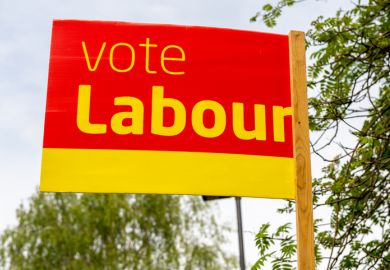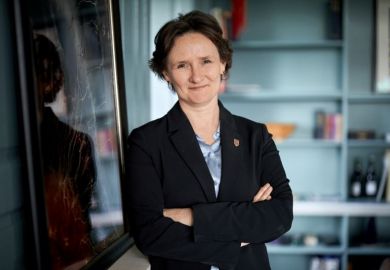A Conservative former universities minister has sought to force into the open the issue of England’s ongoing fee cap freeze and “flush out” whether the Tory government and Labour are “engaging with this issue before the crisis in funding takes a further turn for the worse”.
Lord Johnson of Marylebone tabled an amendment to the Lifelong Learning (Higher Education Fee Limits) Bill that would allow the £9,250 tuition fee cap to rise in line with inflation, an attempt to shift an impasse on the freeze that, he warned, was “creating a situation in which we are systematically defunding our universities, depriving the engines of our knowledge economy of the fuel they need to offer great teaching and world-class research”.
The government has said the fee cap will be frozen until at least 2024-25, meaning a freeze of at least seven years since it rose, to £9,250 in 2017, and little movement since trebling to £9,000 in 2012 to make up for the slashing of direct public funding.
In his time as minister, Lord Johnson set up a system in which fees could rise in line with inflation subject to universities meeting expectations in the Teaching Excellence Framework (TEF) – a system his amendment seeks to revive by calling for automatic annual inflation uprating to the fee cap for universities delivering “great teaching and student outcomes” as assessed by the TEF.
Addressing peers during the committee stage of the LLE bill in the House of Lords, Lord Johnson urged action to address the “relentless erosion in the value of tuition fees”, shrunken by inflation to £6,020 in 2012 money.
“Carry on like this and we will have stretched the unit of resource to such a point that a crisis is inevitable,” Lord Johnson said. “The LLE certainly will not be offered, nor will much else. My view is that we are really not doing our job unless we do something in this committee, and during the passage of the bill, about the fact that the system as a whole is becoming unsustainable.”
He went on: “If we want to retain our position as one of the world’s most highly regarded higher education systems, and to have a fighting chance of attracting researchers to support our goal of becoming a science superpower, this clearly cannot go on. We all know that this needs to be fixed, yet we seem to lack the political courage to do what needs to be done.”
Lord Johnson warned that “a lot of effort is going on across all parties to work out how to say as little as possible about higher education funding ahead of the next general election. I am very grateful for the support from my [Labour and Liberal Democrat] colleagues opposite and hope that, were this amendment to find favour, they would continue to support it as we make progress with the bill. The amendment seeks to force the debate into the open and to flush out the extent to which the government – and opposition parties – are seriously engaging with this issue before the crisis in funding takes a further turn for the worse.”
Saying that allowing fees to rise with inflation would have prevented the financial crisis at the University of East Anglia, he concluded: “We do not need a big review [of higher education funding]. We should not wait for our universities to start falling over one by one. We need to get on and use the mechanism [to raise the fee cap] that already exists.”
Responding for the government, Department for Education minister Baroness Barran said “the government do not believe that it is fair to students to increase tuition fees at this time”.
Register to continue
Why register?
- Registration is free and only takes a moment
- Once registered, you can read 3 articles a month
- Sign up for our newsletter
Subscribe
Or subscribe for unlimited access to:
- Unlimited access to news, views, insights & reviews
- Digital editions
- Digital access to THE’s university and college rankings analysis
Already registered or a current subscriber?








